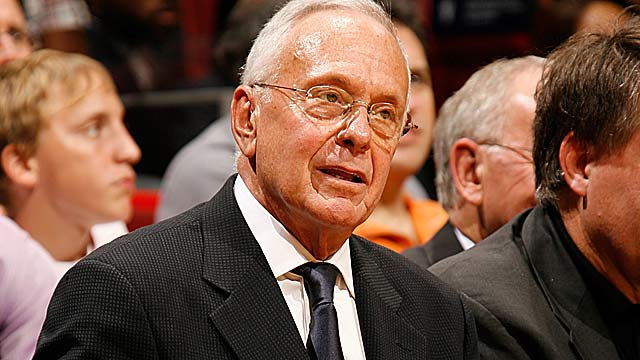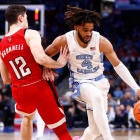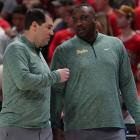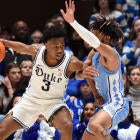
There is no coach working in college basketball now with more NBA perspective than SMU's Larry Brown.
And Larry Brown hates the new rules for fouling and the block/charge that have come to college basketball.
The conventional thinking, in a nutshell, is this: Cleaning up college basketball's physicality and calling more fouls will -- eventually -- allow the sport to flourish. Lanes will be clearer, offense will be smoother and scoring will go up. And players by and large will learn how to properly guard. (Imagine that!) The NBA had a big problem with this in the 1990s and through the turn of the millenium. Then the Association did something about it. You see the NBA in 2013, and it's clear the game is much more aesthetically pleasing than it was a decade ago.
College hoops is mimicking that now process now and hoping it's as transitory as possible. Yet Brown's not buying it. Here's what he told the Fort Worth Star-Telegram:
“I saw it in the NBA and it was terrible,” Brown said after SMU’s season-opening victory over TCU on Friday night. “I couldn’t agree more with freedom of movement and trying to open up the game, but I’ve said this my entire career — until you figure out how to have more shots, you’re not going to get more scoring by putting people on the free throw line. That’s going to be the end result.”
Brown predicted that teams will adjust to the new rule changes by playing more zone defense. ...
“Make kids more fundamentally sound, teach them how to pass and catch and cut and shoot and then you’d have a better game,” Brown said. “We’re playing them too young, we’re not working enough on fundamentals. We’re putting them into systems rather than teaching them how to play."
Well, sure. The fundamentals aspect of it all remains paramount to producing a purer product. But that's a separate kettle of fish. This crusade by the NCAA could be a de facto way of going about improving fundamentals, anyway. Defensively, at least.
In the NCAA's own words, the intentions of the alterations to how refs rule defenders is to "create a less physical game" and have "enhancement of freedom of movement principles and a smoother game flow."
Plenty of coaches won't like it. Others will be fine with it, and plenty will gripe in silence while slowly adjusting. If the subject's already tiring you, get used to it. This will be one of the most persistent storylines of the season this year, and we're only touching the surface so far.





















